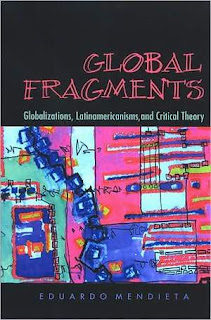Interactions: Studies in Communication & Culture – 1st free issue (2009)
Filed under journal | Tags: · critical theory, media studies 2.0, media theory

We commence publication of Interactions: Studies in Communication and Culture with a special issue on what we believe is a matter of considerable interest. It begins with a question: ‘Do recent developments in the media – convergence, interactivity, Web 2.0 in short, mean that we need to reassess how we think about the media, how we research into it and how we write and teach about it?’ The guest editor, Paul Taylor, has assembled a very serious and lively exploration of the notion of Media Studies 2.0 which we hope, and fully expect, will lead to further discussion in these pages and elsewhere.
Now to move on to our overall publishing policy: this will be a eneralist journal. It is our intention to publish the best work from the widest possible range, by subject matter and by approach: theoretical, empirical and historical of current research in communication and culture. Sometimes, as here, issues will be themed, others will be more general so that in the round, over time, our pages will address all interests. Our subject matter will be international, as will our contributors and we welcome submissions from both better and lesser known academics and departments. We will return to important topics with the intention of establishing informed, scholarly conversations on matters of note. As in the best fiction, our ournal will have multiple storylines, and like good Cubists we will look at our subject from every possible angle.
Contents:
Editorial
Authors: Anthony McNicholas, Tarik Sabry, Mascha Brichta, Alessandro D’Arma, Daniel Day, Janne Halttu, Sofia Johansson, Salvo Scifo, Burcu Sumer and Xin Xin
Editorial introduction – Optimism, pessimism and the myth of technological neutrality
Authors: Paul A. Taylor
Media Studies 2.0: upgrading and open-sourcing the discipline
Authors: William Merrin
Critical Media Studies 2.0: an interactive upgrade
Authors: Mark Andrejevic
Beyond mediation: thinking the computer otherwise
Authors: David J. Gunkel
Sounds like teen spirit: iTunes U, podcasting and a sonic education
Authors: Tara Brabazon
Critical theory 2.0 and im/materiality: the bug in the machinic flows
Authors: Dr Paul A. Taylor
Audience Studies 2.0. On the theory, politics and method of qualitative audience research
Authors: Joke Hermes
Straw men or cyborgs?
Authors: Professor Jonathan Dovey and Emeritus Professor Martin Lister
Media Studies 2.0: a response
Authors: David Gauntlett
Review
Authors: Tero Karppi
Print ISSN: 1757-2681
PDF (fixed, thanks goto80 and tachykardia for the notice!)
Comment (1)John Holloway, Fernando Matamoros, Sergio Tischler (eds.): Negativity and Revolution: Adorno and Political Activism (2009)
Filed under book | Tags: · activism, anti-capitalism, critical theory, empire, multitude, politics, revolution

How can activists combat the political paralysis that characterizes the anti-dialectical theories of Foucault, Derrida, and Deleuze, without reverting to a dogmatic orthodoxy? This book explores solutions in the “negative dialectics” of Theodor Adorno.
The poststructuralist shift from dialectics to “difference” has been so popular that it becomes difficult to create meaningful revolutionary responses to neoliberalism. The contributors to this volume come from within the anti-capitalist movement, and close to the concerns expressed in Negri and Hardt’s Empire and Multitude. However, they argue forcefully and persuasively for a return to dialectics so a real-world, radical challenge to the current order can be constructed. This is a passionate call to arms for the anti-capitalist movement. It should be read by all engaged activists and students of political and critical theory.
Publisher Pluto Press, 2009
ISBN 0745328369, 9780745328362
Length 252 pages
More info (publisher)
More info (google books)
Eduardo Mendieta: Global Fragments: Globalizations, Latinamericanisms, and Critical Theory (2007)
Filed under book | Tags: · critical theory, critique, ethics, globalisation, latin america, modernity, philosophy, postmodern, religion

Global Fragments offers an innovative analysis of globalization that aims to circumvent the sterile dichotomies that either praise or demonize globalization. Eduardo Mendieta applies an interdisciplinary approach to one of the most fundamental experiences of globalization: the mega-urbanization of humanity. The claim that globalization unsettles our epistemic maps of the world is tested against a study of Latin America. Mendieta also recontextualizes the work of three major theorists of globalization—Enrique Dussel, Cornel West, and Jürgen Habermas—to show how their thinking reflects engagement with central problems of globalization and, conversely, how globalization itself is exemplified through the reception of their work. Beyond the epistemic hubris of social theories that seek to accept or reject a globalized world, Mendieta calls for a dialogic cosmopolitanism that departs from the mutuality of teaching and learning in a world that is global but not totalized.
Publisher SUNY Press, 2007
ISBN 0791472574, 9780791472576
Length 226 pages
More info (publisher)
More info (google books)

